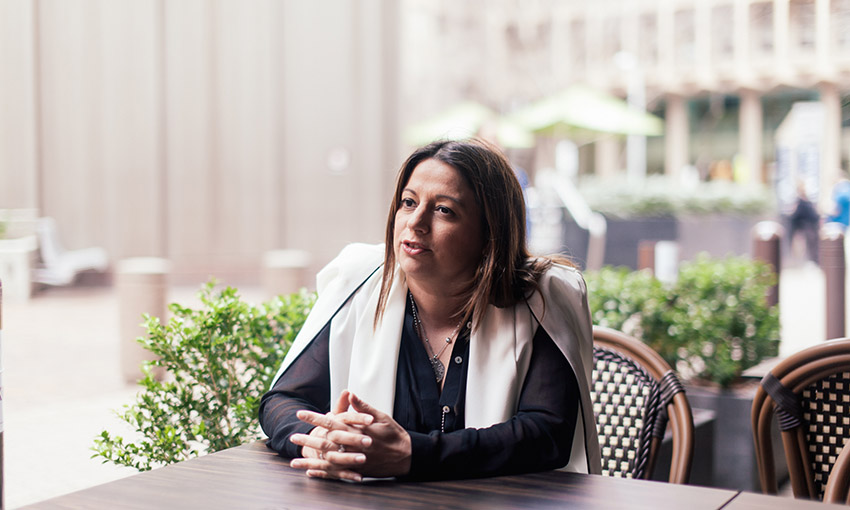As we inch ever closer to the Adelaide City Council elections, CityMag brings you another instalment in our occasional series of candidate profiles. This week, we sat down with current Deputy Lord Mayor and area councillor Natasha Malani who is looking to run for her second term.
One on one: Natasha Malani
Natasha Malani is an entrepreneur, who has dedicated her professional life to business. She runs her own – Access India, the mission of which is to help Adelaide corporations form relationships and begin trade with India.
For more information about the Adelaide City Council elections see the Council website.
For someone of this background, the bureaucracy of local government could seem stifling. But when she was elected as an area wide councillor (meaning she has a responsibility to the whole city and North Adelaide) in 2010, she was pleasantly surprised.
“What I found is that those staff that work in the council administration are just really passionate – that was the most enlightening experience for me – to find out how passionate they were and how agile and quick they were in responding,” she says.
Her interest in entering public life was sparked by the Adelaide Oval redevelopment – something she thought would give Adelaide great opportunity by bringing more people to the city. She identifies this project, which was largely driven by State Government, as one of the catalysts for the broader changes in Adelaide.
While some people argue that some developments – such as a proliferation of small businesses and food trucks – are artificially driven and propped up, Natasha says these things were happening organically anyway; Council and Government just choose to nurture and support it.
“I still think we were pro-active, but we had to be pro-active so as not to be reactive as these new things came into the city,” she says. “And we were starting to learn a lot from other cities as well, for example – New York when they closed Time Square to traffic. We were starting to bring a lot of those principles into Council too.”
Currently serving as Deputy Lord Mayor, she identifies projects such as the Rundle Mall redevelopment as something she is happy with from her first term. But as she prepares to run for re-election, she warns that four years is not enough time to fully realise significant transformations.
“I don’t think I’ve achieved everything I wanted to achieve, I don’t think you can in four years. It takes the first 12 months at least to understand the systems and processes that you refer to – you need that time. Then, year two or three onward you start making some change,” she says.
“I think with Rundle Mall, while this phase is completed and completed well, there’s still a lot to be done in terms of activation of the laneways and bringing some of that character into the mall with all the pop-ups and things. We’ve done the physical stuff, but I think there’s more to do.”
She is approaching her re-election campaign with a platform that covers what she sees as the three key areas for city-users: living, working and running a business, and playing.
Along with the usual plans for better amenity and upkeep of footpaths, roads, etc – which Natasha says “definitely” need attention in the next Council term, she wants to support small business and make the city a place that attracts everyone – from families to teenagers – for entertainment.
She also outlines a plan she recently discussed with head of the Advanced Manufacturing Council, Goran Roos. This would aim to attract new corporate headquarters to the city by selling the city’s benefits – such as lifestyle and low cost of doing business – in a targeted fashion to those companies that could take advantage of niches here like health and medical research.
On the more controversial issue of transport, she is in favour of an “integrated plan” for the whole city.
“We’re not talking one preferred mode of transport over another, we need them all,” she says. “If the problem is around traffic congestion, then we need to get a better integrated plan for the whole city.”
“We continually talk about Barton Terrace in North Adelaide, but it’s naïve to look at one street when it’s connected to the whole city. It’s naïve to look at one street as a 40km/hour zone – we need to look at the whole city as a network. And we’ve done that but it’s going to take time to roll out and I think that again it’s maybe about communicating. Nobody wants to read a transport plan – it’s a combination of making things easy, explaining it well and not over-engineering.”
When it comes to the other big issue of this election – development – Natasha takes a similarly holistic view.
“I don’t think it’s about catalyst sites or not,” she says. “It’s about what is good planning policy in general, what is good design review process and managing supply and demand. We’re not factoring that in and that’s one of my biggest areas of interest. If you build a 20-storey office tower here it will wipe out demand for many existing office spaces. So you have to get that balance right and it’s just such a complex issue that comes down to really fine grain detail.”
Citing a need for residents, investors and developers alike to have certainty and a desire to get the consultation part of the process right, Natasha speaks with confidence. She is a woman with ideas, and not content just to keep them for her own business, she is keen to share them with this city.




